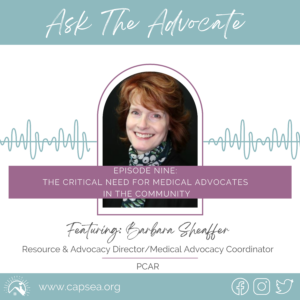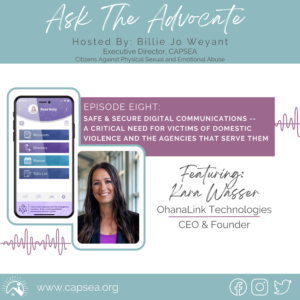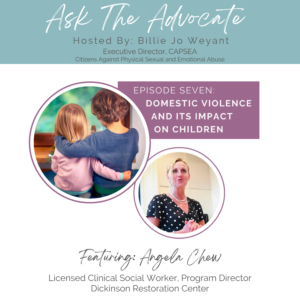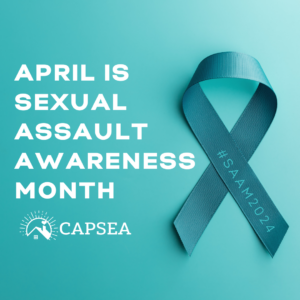Ask the Advocate Podcast: Episode 1
Unique Challenges for Rural Victim Service Agencies
Featuring: Bruce Harlan, Executive Director, Women’s Services in Crawford County, PA
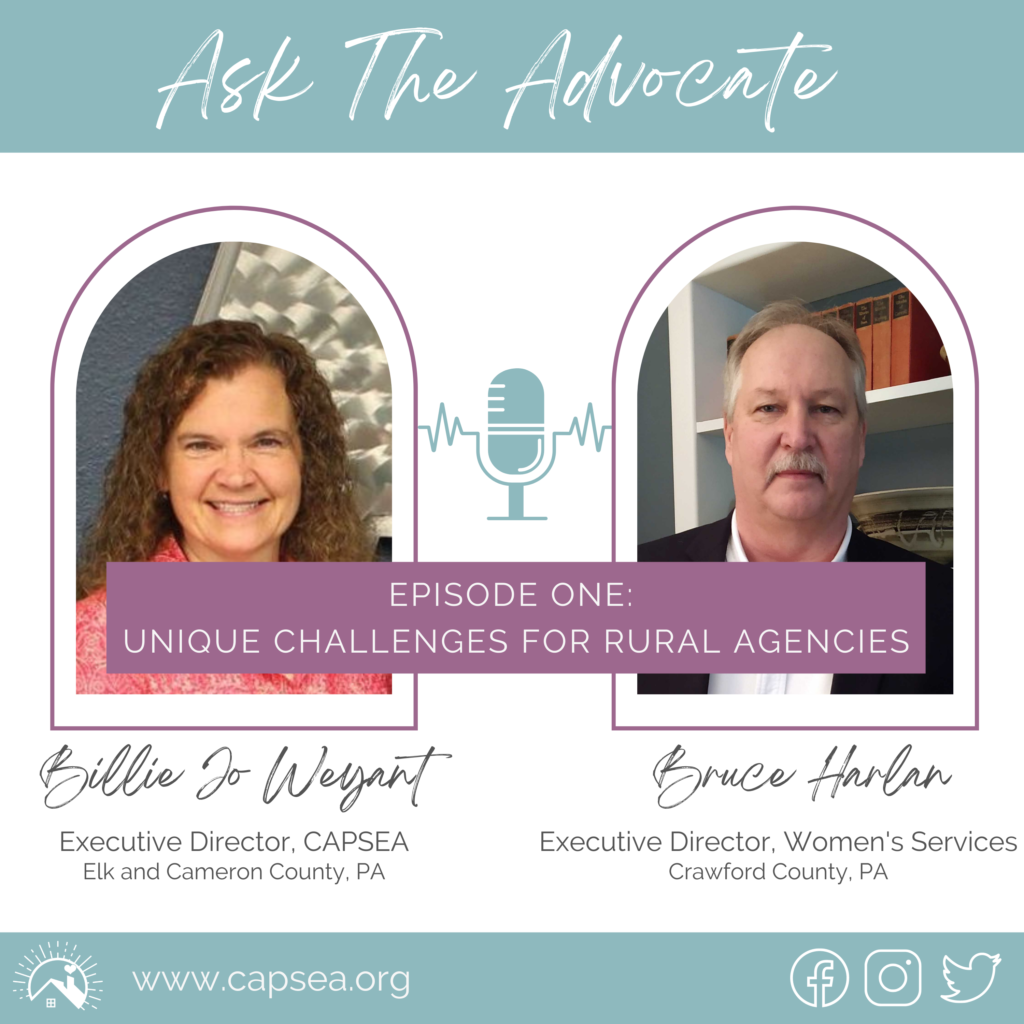
about the Episode
"The silencing and the invisibility of domestic violence and family violence in rural areas really lends itself to perpetrators not being held accountable."
Sit down with two executive directors who each have decades of experience working with victims of domestic violence, sexual assault, abuse, and violent crimes in rural Pennsylvania. Learn what unique challenges small rural nonprofits must overcome to help those in need, as well as what obstacles victims may face when seeking support.
Spaced out communities, limited staff recruitment opportunities, small police departments, and spotty cell and internet service are just a few of the unique challenges that rural agencies, and those they serve, face every day.
Listen to the podcast to learn more, and to see how nonprofits are working to overcome these hurdles.
Billie Jo Weyant (00:01):
You’re listening to “Ask the Advocate,” a podcast series that features advocates for domestic violence, sexual violence, and all other survivors of abuse and serious crime. I’m your host, Billie Jo Weyant, and for the past three decades, I’ve worked in the victim services industry serving as the Executive Director for a Pennsylvania- based nonprofit named CAPSEA, which stands for “Citizens Against Physical Sexual and Emotional Abuse. I invite you to join me as I sit down with my guests, each episode to discuss critical victim service resources and to help raise awareness for the most pressing challenges facing survivors and the nonprofit agencies that serve them.
Billie Jo Weyant (00:44):
Hello and welcome to episode one of the unique challenges of rural victim service agencies. And my name is Billie Jo Weyant. I’ve had over 31 years in the field of victim services, domestic violence, sexual violence, and crime victims. And I’ve worked in a very rural setting. I’m a native of Elk County and our agency CAPSEA citizens against physical sexual and emotional abuse services, elk and Cameron counties located in Northwestern, Pennsylvania. And just to give you a sense of how rural we are,ua total of 35,000 people fit in both of those counties. So welcome and thank you for listening and attending our first episode. And I have a very special guest with me, and I’m so grateful that this gentleman,uoffered to be my first guest. Mr. Bruce Harlan is the Executive Director of Women’s Services in Crawford County, Pennsylvania, and Crawford County is somewhat our neighbor of Elk and Cameron. Bruce was born in Carlisle, Pennsylvania, but grew up in the greater Harrisburg area.
Billie Jo Weyant (01:54):
He graduated from Central Dauphin Eastern High S chool during the nation’s bicentennial year of 1976, Bruce received his Bachelor of Arts degree in behavioral science from Messiah college back in December of 1981. After Bruce graduated, he was hired by a residential treatment facility to serve as a counselor to adjudicated youth. For the next 18 years, he continued to work with that at risk adolescent group in a variety of residential and community-based treatment settings. Now I met Bruce back in 2000. Bruce was offered the position of Executive Director for the Domestic Violence and Sexual Violence Center located in south central Pennsylvania, making him the only male to hold such a position at the time in the Commonwealth. What an amazing feat that was! In 2008, Bruce was appointed to Executive Director of women’s services in Crawford County, where he still works today. Bruce is very active on various local boards and committees serves on the Victim Services Advisory Committee to the Pennsylvania commission on Crime and Delinquency, which is another great, great asset. And Bruce and his wife, Lynn are the proud parents of two sons and a daughter. Together as a family, they enjoy hiking, fly fishing, traveling, and a variety of other great outdoor activities. Bruce Harlan welcome, sir. And how are you today?
Bruce Harlan (03:20):
Billie Jo, I’m wonderful. And thank you for having me on as your guest. So you and I love being in rural Pennsylvania, and I’m looking forward to talking about some of the unique challenges and benefits of working in rural PA.
Billie Jo Weyant (03:33):
Well, and, and Bruce, to get things kicked off here. I think one of the things that comes to the forefront, when you talk about those of us who provide nonprofit services in rural counties is the limited resources that we have to work with. If you could share some of your experiences, that would be wonderful.
Bruce Harlan (03:53):
You know, interestingly, I was working on my “Stop Violence Against Women” grant this last summer… And I found an interesting statistic that and this comes from the Pennsylvania Department of Aging, that in the last five years, elder abuse has increased by 80%. That’s, that’s just off the charts. And, you know, living in rural PA that geographically isolated individuals, particularly seniors are especially vulnerable to domestic and sexual violence. So that’s a huge demographic and they have limited resources. They don’t have transportation, they don’t have Uber and Lyft. There’s often not some kind of county-wide mass transit authority that’s working throughout the county. And when, when you’re able to get folks connected to community resources, oftentimes those intervening professionals work to alleviate the perpetrator’s stressors and do very little for the victims around their safety needs. So, and, and when they do work with victims, it’s usually not from a power and control perspective that you and I are both familiar with.
Billie Jo Weyant (05:01):
Absolutely Bruce. And if I can add to that quickly, and we could talk a little bit about people that really aren’t familiar with the rural setting and the terrain and the geographic locations that we work with. The square mileage alone in Elk County, it takes almost two hours to get from one end of our county to another; that’s on a good day. Most of the roads are small, two lane, very densely forested areas. Remember we have the largest elk herd north of the East of the Mississippi in our areas. So now we have to worry about wildlife elk, deer bear, things like that. And internet, even telephone access is very, very limited. We can go miles without cell service.
Bruce Harlan (05:54):
Yeah, I think the population density in Pennsylvania on average is about one person per, or 284 persons per mile, square mile, but in Crawford County, it’s 88. And I looked it up in Elk County, it’s 38. So yes, very sparsely populated, huge distances in between people and communities.
Billie Jo Weyant (06:15):
I also wanted to bring up the piece about what we all experience when it comes to response time, many times when victims call and how long that takes. And sometimes people don’t realize the extent. If you want to go and explain that a little bit about what you experienced.
Bruce Harlan (06:35):
So our building is here in town in Meadville, and when I call the police, because maybe we’re having an incident, a perpetrator shows up at our door, the police are here, I think within a minute. I mean, the response time is that quick. And oftentimes we get involved with victims here in town who first came to the attention of the police because perhaps a neighbor called or a community member saw something or heard something and was concerned. And they placed that call to the police. And then we got involved and all of those response times are happening almost instantaneously. It’s, it’s quick, but in the rural parts of our community, that’s not the case. And most of that is covered by state police and the response times there are much slower. And you probably have seen some of the same things out of your way, because you’re even more sparsely populated.
Billie Jo Weyant (07:20):
Absolutely. Bruce. We see it all the time, especially overnights, weekends… You know, you’re talking about an area where we have one state trooper possibly on call with a squad car, and something occurs, and that trooper sometimes doesn’t even live in that county. So what we will experience is the trooper is home, gets called out, and then has to travel sometimes an hour, hour and a half just in order to get to the call. Now think about our small borough police departments. Because we have such a small population and the tax base is so low, we cannot fully fund our law enforcement. So some of them, you may have one officer on at night, two if we’re lucky, and sometimes it’s not through the night. So a lot of times our officers have to make snap decisions as to what they’re going to do, because they may be the only one on for eight hours or so. And if they do arrest somebody, until a district magistrate can come out and meet with them, they have to hold that person, and they can’t leave that person unattended at all. So they’re in the station trying to maintain safety and everything. If another call happens, they don’t know what they’re going to do. They have to try to call somebody else out, which then in turn causes overtime or unbudgeted expenses. So it becomes a domino effect through no fault of law enforcement whatsoever. It’s because of the rural conditions we live in.
Bruce Harlan (09:05):
Right, and women know this, they know that the response times to their farm or their community are slow or long, and they cut- that’s like part of the calculation when they’re trying to reach out.
Billie Jo Weyant (09:16):
Exactly. So not only that, you know, let’s talk a little bit about funding and talk about the monies that we receive. And we are, our funding is dependent on our population in many, many you know, times. So we get not much funding at all and we have to try to work miracles with that amount of money. And sometimes it’s totally impossible. We’re always very understaffed and we have such specific needs.
Bruce Harlan (09:51):
Yeah. It seems like a kind of a backwards way of funding programs. I mean, no one single life is worth more or less than any other single life. And when your funding is based on population and outputs, and because you have fewer people you’re working with, you have fewer outputs like shelter nights and counseling hours, then it, it does create an additional burden for programs to fund their programs. And as you’ve talked about in the past, we don’t have foundations operating in our communities that can help fund some of these programs.
Billie Jo Weyant (10:23):
No. And those of us that are doing this kind of work or similar work, we’re all tapping the same resources over and over and over again. So it’s a limited amount of funding and goods. I know we spoke before and we spoken for years about the fact that when we do a fundraiser say you want to even put something as simple as a fundraising basket together that you would like to raffle off… Many times, if it’s a certain time of the year, you will not get businesses to really be supportive of that because they’ve already given everything away that they can.
Bruce Harlan (11:04):
Yeah. And then there are staffing challenges, right? Because we don’t have a large pool to pull from. And a lot of the women that come to work for me, and I assume you, you find something similar, they very seldom have left the county or the region. And so they have a very limited perspective on, on the larger world. And you know, sometimes they have limited educational backgrounds often a wealth and a treasure trove of, of life experiences, which is tremendous. But trying to hold on to people and particularly the younger generation, which seems to be a little more reluctant to stay for long periods of time. You know, I have a couple of staff who’ve been here over 30 years. They have devoted their entire lifetime to this organization and the clients that we serve; I’m not finding that with the younger generation. So there are staffing challenges as well.
Billie Jo Weyant (11:55):
Absolutely. And for those of us who have spent 20 plus or 30 plus years in this work, we’re, it’s a struggle for us to try to make a succession plan work effectively or strategic planning work effectively because we think so differently than the new generations. Absolutely.
Bruce Harlan (12:18):
Yeah. For the first time, Billie Jo really starting to sense or notice a generation gap between myself and the 20- something crowd.
Billie Jo Weyant (12:25):
As am I definitely. Definitely.
Bruce Harlan (12:29):
All right. Well, it’s almost time for you and I to turn the reigns over. So we’ll make the most of the years that we have left. And I think what you’re doing here with this podcast is terrific. So keep up the good work.
Billie Jo Weyant (12:39):
Well, I appreciate that. And I certainly hope that we’re going to be able to really get the word out and that together we can all make some major changes for victim services and, you know, Bruce you and I were talking too, and we have for many years about how difficult confidentiality is in a small rural setting. There are some major challenges there.
Bruce Harlan (13:04):
Yeah. All sorts of barriers that center around confidentiality, for example we talked about geographic isolation and lack of transportation. But income is also an issue. You know, a lot of women in rural settings live on family farms, and these are often complex financial arrangements and, and financial dependency around the farm that- the money is invested in the farm. You can’t just take your income and go. Oftentimes they’re, they’re a source of labor on the farm. And so if, if they leave and take the children, that could mean the family farm would go under. So lots of, lots of issues there. Then of course in small communities, there’s always a fear of stigma and shame… Community gossip, you know? And then there’s generally a lack of perpetrator accountability, right? But the, the silencing and the invisibility of domestic violence and family violence in rural areas really lends itself to perpetrators not being held accountable.
Bruce Harlan (14:02):
You know, also police can be unsympathetic. Sometimes court responses continue or contribute to a lack of accountability. There’s a lack of privacy due to the high likelihood that police and health professionals and domestic and family violence advocates know both the victim and the perpetrator, and that can inhibit a woman’s willingness to come forward. There’s also all sorts of pre-existing relationships between the women who come to see us and staff who work in our programs. I can’t tell you how many times somebody has come in and somebody in the agency knows them or knows of them, or knows a relative. And so that’s often a barrier. And then we have these traditional gender roles in rural communities, which really can make it difficult for women. And by that, I mean, you know, these are for example, in rural areas the way men see themselves and how their roles are constructed, it tends to privilege strength and courage and domination. And these traditional and patriarchal roles also lend themselves to a form of violence. And then you add in gun ownership, you know, it, it just becomes a really difficult environment for women to function, operate in, and to get help
Billie Jo Weyant (15:23):
You are so right. And if I could add not only women, but male victims, child victims, also victims of sexual violence and human trafficking are less apt to receive services in a rural community. Human trafficking is such an issue and it’s a big problem in rural communities. And that’s, that’s something that no one, I mean, we’re just starting to scratch the surface with that and how can we help them? But, you know, Bruce going back quickly and when you were talking about those gender roles and talking about, just think about, you know, for instance, the people we deal with every day in our communities… They can be abusers. They can be victims. Sometimes they’re the only business in town or the only one in town that you need to get work done from. And you’ve already maybe had them in court through protection from abuse orders or other criminal hearings and things like that. And then you have to face this person and call them and say, “We need your help here.” It’s very difficult. Very challenging to try to maintain not only confidentiality, but safety in a small rural community. There are so many, so many different things to consider. We have to always consider a lot when it comes to safety and confidentiality.
Bruce Harlan (16:50):
Oh, we sure do. And you mentioned human trafficking. You know, we focus a lot on the interstates because we know that a lot of the trafficking uses the interstate systems to get around, but I’ve been convinced now for a number of years that it’s some of these lesser known more rural roads that also would be conduits for trafficking and Route 6, as you know, runs through my county and east into your counties. And why not Route 6? Route 6 goes all the way across the country. And people would not be as familiar or knowledgeable about human trafficking along Route 6. I think you and I need to talk about forming a task force that would span Route 6 and really focus on the, on that particular highway.
Billie Jo Weyant (17:32):
You’re absolutely right. And if you think about that and you can disagree with me all you want to, I think even though Route 219, that runs directly through Ridgeway and that’s another
Billie Jo Weyant (17:48):
A highly…
Billie Jo Weyant (17:51):
Oh, absolutely. That is a main thoroughfare. You know, unfortunately there have been many criminal acts that have occurred and many horrendous things that have happened along Route 219. So I think, yes, a lot of these rural areas, you will find there’s a lot going on, but people just aren’t aware of it. They just, you know, they assume because you’re in good old Crawford, Elk, or Cameron counties, or one of the other surrounding little small towns, it’s not happening here. Right. And unfortunately it is.
Bruce Harlan (18:31):
Yes… All right, what should we talk about next Billie Jo?
Billie Jo Weyant (18:34):
Well, you know what? We have talked about so many things that I really wanted to touch upon. I think again if we could maybe recap a little bit, just so listeners, folks that do not live or have not been in a very rural community would realize what that geography is actually like. It’s like we’re living in the middle of the woods truthfully. Would you agree?
Bruce Harlan (19:07):
Oh, yes. And you know, years ago I heard a quote that when you’re on a lonely country road, nobody can hear you scream. I mean, there’s a sense of isolation and separateness that you can only experience in a rural setting um… Now, and, and you and I are, we’re not saying that the challenges are, are more so in rural settings than they are in urban settings. Urban settings have their own unique set of challenges and we’re not slighting them in the least bit. But when you work in rural communities, there are also unique challenges that we face that I think maybe our urban counterparts are not as familiar with. And you mentioned being so far apart, I found an interesting statistic from the Rural Disparity in Domestic Violence Prevalence and Access to Resources, which said that 25% of women in small, rural, and isolated areas live more than 40 miles from a domestic violence program. Whereas in the urban settings, 1% of women living in urban centers are more than 40 miles from the program. So right there, you can see that it’s, it’s a huge barrier for women to access services.
Billie Jo Weyant (20:21):
It is absolutely a huge barrier for anyone to access services and, and let alone, I mean, through the years that I’ve worked at, you know, at CAPSEA here and, we’re going over 30 years, and experiencing a lot of adult men who were victimized as children, and finally over the past few years have felt safe enough to reach out and understand that they are not going to be mocked or blamed or made to feel terrible because this happened to them. They realize this is not their fault. This is somebody hurt them, and it’s not their fault. That is one of the toughest things that, through my years of my tenure here and working with victim survivors, is to try to get across to somebody that this what happened to you is not your fault. You had no control over it. And I don’t know if you’ve experienced that too, but it’s really that is one of the biggest hurdles to get over for victims.
Bruce Harlan (21:29):
Yeah. I think it’s been one of the biggest disappointments of my career that, that we haven’t been more successful in reaching men. You know, that one in four girls are sexually assaulted before their 18th birthday, but one in five, one in six boys also are sexually assaulted before their 18th birthday. And so where are these men? There are a lot of wounded men walking around who are dealing with this issue, childhood sexual assault alone without supports, without assistance. And I’m sure having a program name like “women’s services” is another barrier that we’re putting up and making it more difficult for men to come in and seek services. But are you seeing then more men? I hope that that’s the case.
Billie Jo Weyant (22:12):
We are really starting to see more men and especially with our traumatic incident reduction, which is something I’m going to be talking about in another episode, but yes, with the traumatic incident reduction techniques that we offer, we are really opening the doors and, and helping so many that I don’t believe would otherwise see us or want to seek help. And I’m really pleased about that, very pleased about that.
Bruce Harlan (22:43):
Well, that’s great. And I’m sure it helps to have a gender neutral name.
Billie Jo Weyant (22:46):
Yes, it does.
Bruce Harlan (22:48):
Although, and we talked about this as well. It’s, you’ve been, you’ve been in Cameron and Elk counties for how long, CAPSEA?
Billie Jo Weyant (22:56):
Over 43 years.
Bruce Harlan (22:58):
Yeah. So people probably developed a certain idea of what your agency is. And sometimes it can be hard, particularly in rural settings to break through and, and present yourself a little differently to the community, particularly when you add new services and new programs. Are you finding that as well?
Billie Jo Weyant (23:14):
Yes, because Bruce we’re still considered the “women’s shelter” for Elk and Cameron counties. So what I do is I embrace that. And then as, as that spokesperson and I go out there and, you know, you know, we have to advocate and what we do is we talk, and we talk to folks, and when people ask us those questions, we nicely professionally educate them and just move on from there. But yeah, I think we’ll also always be called the “women’s shelter” in elk and Cameron counties.
Bruce Harlan (23:48):
Yeah. Same thing out here. In fact, a funny story, when this program was getting started back in the late seventies, they were looking at purchasing a green house. Now they never did purchase that green house, but that name stuck. And they just started referring to themselves as the greenhouse. And that’s the name that most people in this community know is by, even though we’ve been incorporated as Women’s Services for 35, 40 years, most everybody still knows us as the Greenhouse. We probably should just, yes… And not until I resided the building that we’re currently in, have we actually been in a green house.
Billie Jo Weyant (24:24):
So you resided it, green
Bruce Harlan (24:26):
Yes, had to do it, had to do it.
Billie Jo Weyant (24:29):
Hey, I would have done the same thing! That was great. That was great. I think one last thing I’d like to touch on is the fact that, on a positive note, and I’m also going to invite folks from urban programs to come in and talk also… Yes, this is going to be something that I want everyone’s perspective on. But one thing that I think we need to really impress is the fact, over and above everything, those of us in small communities like this, I was born and raised here and I continue to, I raised, you know, raised my family here and everything, but the wonderful relationships and the allies, the people, the relationships you build that really are lifelong and they almost become extended family members.
Bruce Harlan (25:24):
Yeah. So I couldn’t agree more. Billie Jo, you know, I’m on a first name basis with the district attorney, with most of the police chiefs. I know most of the police officers here in Meadville um… We have the chief medical officer at our local hospital was Denise Johnson, who recently was named a top surgeon here in Pennsylvania. And, and she was a close ally and a good friend and yes that’s how business gets done in most places, but in particular, in rural communities: around that relationship. So I can pick up the phone if there’s an issue or a concern… I can pick up the phone and call the police chief or the district attorney and we can get the problem resolved almost immediately. We don’t stand on formality, we really stand on relationships. And so I’m constantly reminding my staff: P reserve the relationship because we may lose today’s battle, but we want to be in a position to win tomorrow’s battles. And so you can’t burn any bridges.
Billie Jo Weyant (26:26):
Bruce, you are so right. And I’ve told staff this forever, and I believe these were wise words from Carol Alexsy the late great Carol Alexy, from the Pennsylvania Coalition Against Domestic Violence, when she said, “Go to work every day, you are only there to lay some stepping stones. Don’t think that you have to change the world. You have to leave some work for other people.” And I think I, I, I just, those are words I live by and I loved Carol and she really was ahead of her time. And you know, we were so blessed to know her and anybody that’s you know, listening to this podcast that knows anything about the Pennsylvania Coalition Against Domestic Violence… Uh Carol Alexy was one of the founders. I mean, she was there almost since day one, but I think that-
Bruce Harlan (27:24):
She had a terrific sense of humor.
Billie Jo Weyant (27:26):
She was wonderful, wonderful.
Bruce Harlan (27:27):
Which I think allowed her to stay in this field for so long, because as you know, this is hard work and it’s traumatizing work. And, and I, I suspect all across the state, we have a lot of advocates who are not focused on wealth or health and wellbeing and, and good life work balances and probably are operating from a kind of burned out place because we just don’t do a really good job of taking care of ourselves like we need to, but sense of humor is everything. You have to be able to laugh, laugh at ourselves and laugh, um so many things that come along in the work that we’re doing. So I always appreciated Carol’s sense of humor.
Billie Jo Weyant (28:11):
And you are so right about that sense of humor, because if you can’t have fun every day, even if it’s a little bit of fun and laugh and talk and you know, be friendly, it’s, I mean… That’s what it’s all about. And Bruce, you are so correct though. We are the worst. And I believe I was told once that victim services is one of the most- it is the highest stress job you’ll ever love. And I can’t remember who said that to me, but it is true, especially when you get into dual, like programs like ours, where we do domestic violence, sexual violence, crime victims, homeless… We’re doing it all. And we’re trying to juggle, you know, it’s very difficult, but I think those of us we really need to become empowered with one another. And now with modern technology and Zoom and all these wonderful ways and platforms, we can get together much easier. And you know, we need to take that time for ourselves.
Bruce Harlan (29:21):
We sure do. And that’s why I’m so grateful for this trauma informed movement that’s sweeping both Pennsylvania and the nation. You know, on one hand, it gives us a different lens through which to look at the people we’re working with, you know, instead of asking what’s wrong with them, we ask what has happened to them, which then opens up the door to all sorts of wonderful empowering discussions. But also it, it helps us focus on ourselves a little bit, that we have to take care of ourselves. We have to pay attention to our health and wellbeing. Or we’re going to be negatively impacted by the traumas that we’re experiencing vicariously.
Billie Jo Weyant (29:59):
You are absolutely right. And my friend, we only have a few minutes left and to wrap this up, I really wanted to get your feedback on- Can you tell me, and what type of trends maybe that you have experienced since COVID, which struck us overnight, have you experienced, and maybe some of the things that you’ve done at your program to offset COVID and help victims?
Bruce Harlan (30:27):
Well, we’ve always been operating from the perspective that people who need us will reach out to us via the phone or come into our offices or come into the courthouse. And I think COVID taught us that we can’t rely on that. We have to find other ways to reach people. So maybe it’s through telehealth, maybe it’s remotely through virtual means like Zoom. We were able to put some of our prevention programming into digital formats. And so now more people are able to see those programs. So yes, I, I’m still trying to figure out what the new normal is going to be post pandemic. But I’m sure one part of it is going to be that we’re going to have to do much more of this work virtually, and maybe that’s the way we reach some of these isolated individuals in these remote communities is, is some sort of virtual means. I’m not sure what that looks like, but I think we’re onto something there.
Billie Jo Weyant (31:23):
I agree with you wholeheartedly Bruce. I don’t think, and I, I’m not going to allow virtual options to go away here. We’re going to continue at CAPSEA to do virtual. We’re also looking into texting and chatting and different means to provide services over and above virtual, because I want to be prepared and ready in case our new normal is never the normal that you and I are used to experiencing in the past. And I just think that we’re also again, so blessed that all of us have worked so well together for so many years. And I’m so excited now to be able to do this podcast and to get different people on and have you back again, and maybe get a number of people on that we can talk about many, many different topics. And also anybody that’s listening to this, and if you’re interested and you would like yourself, from anywhere to be a guest on our podcast, I’m very open to that. And we will make sure that we have an email address and some contact information so that people can reach out to us, and we can talk about getting them on. Any final thoughts about our rural experience and things that we talked about today, Bruce.
Bruce Harlan (32:50):
Yeah. You know, I was reminded this morning when I got up of something, Martin Luther King, Jr. Said years ago about, “The arc of the moral universe is long, but it bends towards justice.” change takes a long time, but it does happen, and each of us who are working in this field and who are working for social change, we’re all part of this mosaic of, of people who are working for justice. And together, we really can accomplish a lot, because the sheer number of us who are doing this work is going to force change and we’re going to do it. Maybe not in our lifetimes Billie Jo, but it’s going to happen. We can end violence in our communities.
Billie Jo Weyant (33:29):
We absolutely can, my friend and I’m going to end it right there, because I have nothing better to add. Bruce Harlan, Executive Director of Women’s Services in Crawford County, Pennsylvania. Thank you, my friend, I appreciate this, on our first episode of “Ask the Advocate.” For Bruce Harlan, I’m Billie Jo Weyant from CAPSEA, thank you for listening.
Recent Episodes
Ask the Advocate Podcast: The Critical Need for Medical Advocates in the Community
Billie Jo Weyant, CAPSEA, & Barbara, PCAR...
Read More >Ask the Advocate Podcast: Safe & Secure Digital Communications
Billie Jo Weyant, CAPSEA, and Kara Wasser,...
Read More >Ask the Advocate Podcast: Domestic Violence and Its Impact on Children
Billie Jo Weyant, CAPSEA, and Angela Chew,...
Read More >Never Miss an Episode
Join the CAPSEA Community and subscribe to the Ask the Advocate Podcast today to make sure that you never miss an episode.
What's New with CAPSEA
Read the latest blog posts, interviews, and articles.
JOB POSTING: Full-Time Medical Advocate
CAPSEA is hiring a Community Outreach Coordinator...
Read More >What Were You Wearing Exhibit
Learn more about CAPSEA's DVAM programs and...
Read More >Sexual Assault Awareness Month April 2024
Learn more about CAPSEA's DVAM programs and...
Read More >
If you or someone you know needs help, call our 24-hour Hotline:

